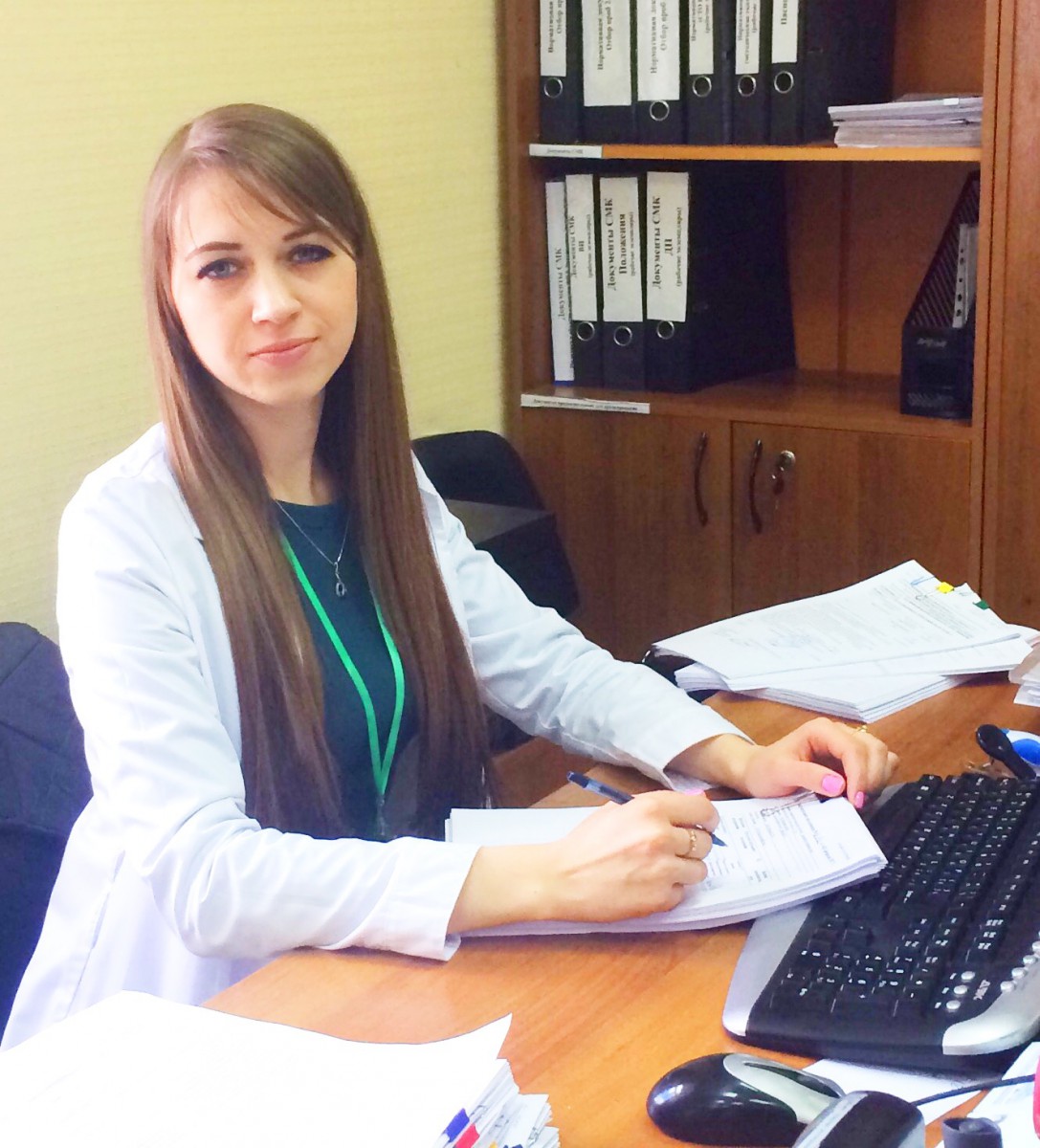


FEDERAL STATE BUDGETARY INSTITUTION "CENTRAL
SCIENTIFIC AND METHODICAL VETERINARY LABORATORY "
- Main
- About us
- Historical background
- Manager Team
- Organizational structure
- Moscow Testing Laboratory
- Tula Testing Laboratory
- Oryol Testing Laboratory
- Lipetsk Testing Laboratory
- Samara Testing Laboratory
- Chelyabinsk Testing Laboratory
- Phytosanitary Testing Laboratory
- Feedback
- Novosibirsk Testing Laboratory
- Altai Testing Laboratory
- FAQ
- Vacancy
- Tyumen Phytosanitary Testing Laboratory
- Our services
- Price list
- Documents
- Contacts
- Virtual tour
Head of the department: Terekhina Olesya Nikolaevna
Education: higher vocational
Graduated from the Ryazan State Agrotechnical University named after PA. Kostychev.
Qualification by education: agronomist scientist
The main activities of the department:
- conducting laboratory researches of samples of regulated products in order to establish their quarantine phytosanitary condition;
- confirmation of compliance with the quality of grain and its products.
The main expertise in the field of plant quarantine:
- entomological examination (identification and identification of quarantine and non-quarantine pests in seeds, seeds of all agricultural crops, planting and inoculation material, tubers, bulbs and other parts of living plants, fruits, vegetables, dried fruits, spices and
other);
- mycological examination (identification and identification of quarantine and non-quarantine species of pathogens of fungal plant diseases in seeds, tubers, bulbs, seedlings, pot plants, root outlets and other vegetative and underground parts of plants including their roots, cuttings and slips);
- bacteriological examination (identification and identification of quarantine and non-quarantine species of pathogens of bacterial plant diseases in corn seeds, potato tubers and other plants of the nightshade family, seedlings of fruit trees and in other living plants including their cuttings and layouts);
- virological examination (identification and identification of quarantine and non-quarantine species of pathogens of viral plant diseases in seedlings of fruit plants, rosettes of roots and in other living plants including their cuttings and layouts);
- helminthological examination (identification and identification of infestation in plant materials and soil of parasitic nematode species in all planting materials: rooted plants, seedlings, seedlings, tubers, bulbs, rhizomes, cuttings and soil samples);
- Herbological examination (identification and identification of quarantine and non-quarantine species of weeds in the seed of all crops, food and feed grains, planting material, feed, soil).
Basic research in the field of quality and safety of grain and its products:
Organoleptic characteristics:
- color, smell, taste;
- color, smell, taste, crunch (in flour and bran);
- color, smell (in oilseeds, grains and leguminous crops for food, feed and technical purposes, as well as cake and meal);
- color, appearance (feed of plant origin, animal feed, premixes, protein and vitamin supplements, mineral additives)
Safety performance:
-infections, contamination by pests of grain stocks (in groats, flour, bran);
- hidden infection with pests of grain stocks (in grain and leguminous crops for food, feed and technical purposes, as well as in malt);
-infection of pests of grain stocks (in oilseeds, grains and leguminous crops for food, feed and technical purposes, as well as cake and meal);
Physical and chemical indicators:
- litter and cereal and especially studied admixture (in grain and leguminous crops for food, feed and technical purposes);
- oil and weedy and especially studied admixture (in oilseeds);
- mass fraction of moisture and dry matter content (in flour, bran and cereals, oilseeds, grains and leguminous crops for food, feed and technical purposes, as well as cake and meal, in compound feeds and premixes);
-quantity and quality of gluten (in flour and wheat);
- number of drops (in flour and grain of wheat and rye);
- mass fraction of protein, nitrogen and crude protein content (flour and bran, cereals and leguminous crops for food, feed and technical purposes, as well as feed and feed feed);
-viability, energy and germination capacity (cereals and leguminous crops);
-nature (cereals);
-glass (wheat grain);
- cooking of buckwheat groats and oat flakes (in groats);
- metal admixture (flour and bran, grain and leguminous crops for food, feed and technical purposes, as well as feed and feed raw materials).
The work of the department is based on meeting the requirements for testing laboratories established by Russian and international standards. When conducting all types of research and measurements in the laboratory, only methods are used in accordance with GOST ISO / IEC 17025-2009, EPPO standards, which allows for high quality testing.
In order to ensure a high level of customer service and provide the most reliable information about samples (samples), the quality management system is based on its continuous improvement, which includes expanding the scope of services provided, introducing new test methods, continuous staff development in advanced laboratories and training centers in the country and abroad, participation in interlaboratory comparative trials, equipping with new modern equipment and laboratory modernization, and also constant intra laboratory control.



